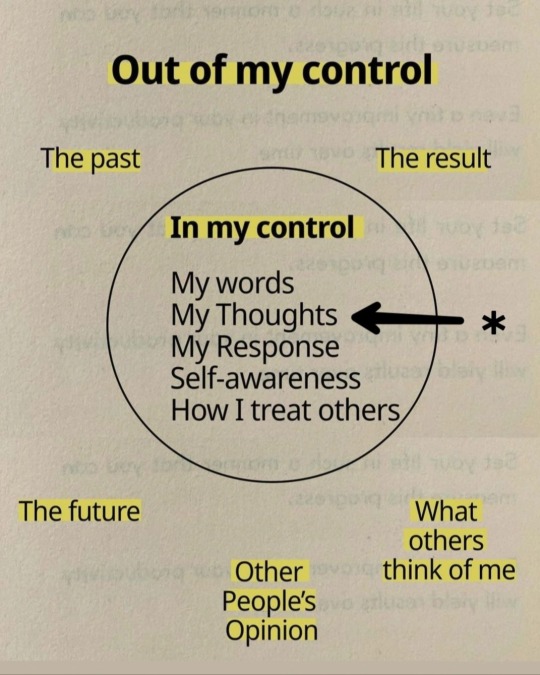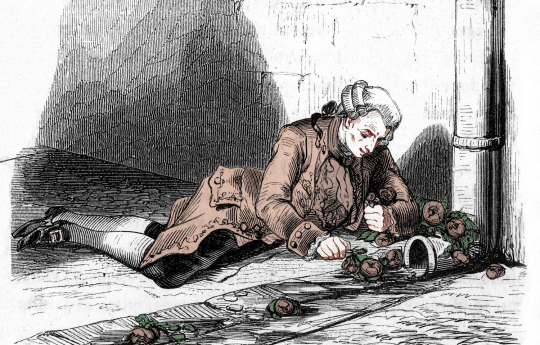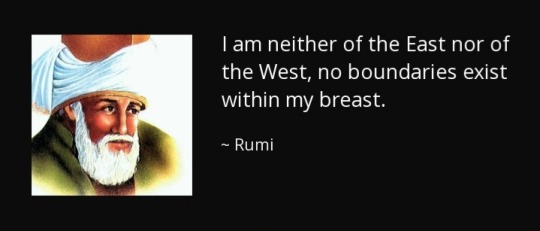#western philosophy
Text

* You're not responsible for every thought that comes in and out of your head. They're not necessarily within your control, not initially anyways.
It is within your power, however, to decide which ones you want to hold on to and those you wish to discard.
You're responsible for observing thoughts that flow inward and choosing whether or not you act on them, buy into them, or take ownership of them.
#KnowThyself
#TheWolfYouFeed
#IsTheOneThatWins
#stoicism#stoics#the stoics#western philosophy#philosophy#self improvement#know thyself#greek aphorism#delphic maxims#apollo#temple of apollo#Delphi#the wolf you feed#the wolf you feed is the one that wins#proverb#two wolves
252 notes
·
View notes
Text
Hegel's overriding impulse was to comprehend all dimensions of existence as dialectically integrated in one unitary whole. In Hegel's view, all human thought and all reality is pervaded by contradiction, which alone makes possible the development of higher states of consciousness and higher states of being. Each phase of being contains within itself a self-contradiction, and it is this that serves as the motor of its movement to a higher and more complete phase. Through a continuing dialectical process of opposition and synthesis, the world is always in the process of completing itself. Whereas for most of the history of Western philosophy from Aristotle onward, the defining essence of opposites was that they were logically contradictory and mutually exclusive, for Hegel all opposites are logically necessary and mutually implicated elements in a larger truth. Truth is thus radically paradoxical.
Richard Tarnas, The Passion of the Western Mind: Understanding the Ideas that Have Shaped Our World View
#quote#Richard Tarnas#Tarnas#Hegel#Aristotle#coincidentia oppositorum#coincidence of opposites#union of opposites#truth#philosophy#Georg Wilhelm Friedrich Hegel#Western philosophy#Western Mind#thinking#psychology#mind#paradox
164 notes
·
View notes
Text

Lego Tao Trio
Eastern and Western philosophies together.
Source
Creator: Shifter-Eternal
#lego#bionicle#pokemon#reshiram#zekrom#kyurem#unova#gen 5#gen 5 pokemon#taoism#black and white#legendary#legendary pokemon#alchemy#dragon#dragon-type pokemon#western alchemy#philosophy#eastern philosophy#western philosophy#draconic#reptile#reptilian
29 notes
·
View notes
Text
America is the problem. America, historically, has been the root of supporting or committing:
worldwide debt, genocide, economic collapse, continued unresolved conflict, war, ethnic and cultural cleansing and appropriation, political coercion and corruption, dictatorships and exploitation.
America has so well put up the front of “heroism”, by relieving countries IT FIRST PUT INTO COLONIALISM, IMPERIALISM OR DEBT. The “Great America” that ended WWII and the holocaust, is now supporting the holocaust of the Palestinian people, and the UN isn’t resisting and being proactive about it- WHY??? Because it exists on AMERICAN SOIL and is subject to WESTERN INFLUENCE AND IDEOLOGY. Western influence and ideology of ‘independence’ and ‘democracy’ has been mobilized to be a weapon of international domination, and an ironic powerhouse of human violations. Western power is freedom, built on the despotism of others. Western power is democracy, handled by white Constitutional control. Western power is safety, wielded through the hands of abusers. Western power is distributed unequally because in what world is it fair if America never landed on top.
#vents#rants#political#if you don’t like my opinion then block me and move on#america#western-ecentrism#western philosophy#America is the problem#free Palestine#free iraq#free iran#free afghanistan#free yemen#free kazakhstan#free sudan#free congo#free gaza#vietnam war#black power#history of Congo#history of Tanzania#history of Africa#look into the history of African colonialism
18 notes
·
View notes
Text
Nietzsche and Nihilism
If there's one thing that really grinds my gears it's when people treat Nietzsche as some sort of face of nihilism. I think anyone who is well-versed in Nietzsche's work would agree that the guy is definitely not a nihilist, as he is very openly against it in almost all his works.
I believe this misunderstanding of Nietzsche's philosophy mostly comes from the averages person's understanding of worth.
When Nietzsche said, "God is dead," he was referring to the objective meaninglessness of the world. A lot of people take this at face value, understanding objective meaninglessness as absolute meaninglessness. However, this is not the point Nietzsche was trying to make at all.
In our age of enlightenment values and reason, the western man values objectivity and shuns subjectivity (If you want to read more about the negative effects of enlightenment principles, Max Horkheimer and Theodor W. Adorno's Dialectic of Enlightenment is great). This sort of "facts over feelings" mindset is exactly what led to the nihilist interpretation of Nietzsche being so common. When people read that this guy thinks that objective meaning does not exist, they can't fathom any other meaning existing, because their whole life has been built around putting objectivity on a pedestal, they cannot begin to think about finding anything of significant value through their own subjectivity.
However, this is exactly what Nietzsche is proposing in his work. Objective meaning may be gone, but that does not mean that meaning is impossible, we should instead chose what has meaning to us, based on our own subjectivity. That is what he means when he speaks of the "will to power." My personal understanding of the will to power is simply the desire to be yourself ("simply" is perhaps the wrong word, it's much more nuanced than just "being yourself" but I think it sums it up nicely).
In fact, Nietzsche's main criticism of the modern Christian church was actually that it was "necessarily nihilistic." Modern Christianity puts all its focus on the afterlife. Even if they claim to be worried about being kind and spreading the truth of God, at the end of the day they are only doing that so they can go to heaven when they die. Taking the emphasis off of this life and placing it on the afterlife is precisely what makes modern Christianity nihilistic to its very core.
A notion Nietzsche touches on briefly after his denouncement of modern christianity is that of eternal recurrence. On this, he claims that we should live our lives in such a way that we would be happy to live it over and over again for all eternity. A lot of people dislike this claim, and point out that a lot of people aren't born in circumstances in which they can be happy over and over again (ex: because of poverty, discrimination, political situations). I don't disagree with this at all, there are an incredible amount of people who have to live in situations out of their control which make them unhappy with their life. However, you have to remember that Nietzsche is much more metaphysically inclined. When he says you should live a life you would want to life over and over again, he is more talking about the person you are. You should make choices about your virtues and your morals which would make you happy about the person you are, so much so that you would want to be you over and over again, no matter your external circumstances.
I actually used to hate Nietzsche, as I had only heard of him through this sort of depressed high school boy view that twisted him into a nihilist. However, once I read him for myself, I found his message extremely inspiring, and helped me mentally a lot. The idea of being yourself no matter your circumstances is a beautiful one, and I think it's really sad that most people just view Nietzsche as the nihilism guy.
Remember to be yourself!!!! Nietzsche said so!!!!!!
For anyone who wants to read it, here's a bonus question from an exam that I took this semester where I basically said the same thing as above, but it's worded more concisely I think:
"It is often claimed that Nietzsche is a nihilist and his philosophy is nihilistic in nature. Do you agree with this claim? Indeed what is behind Nietzsche’s denying modern society, traditional values, morality, and Christianity? How would you argue?
I strongly believe that Nietzsche is not a nihilist. In his claim that there are no objective virtues, he is not negating the meaning of human life, he is stating that there are no universal values. I think a lot of the misunderstanding of this claim making Nietzsche a nihilist comes from people's view of subjective vs objective value. Objective values are not inherently more "real" than subjective ones, and I believe this is where the most common mistake is made. Nietzsche advocating for subjective virtues does not make these virtues any less significant than objective ones. Life still has meaning, but it's up to every individual to decides on those virtues for themselves. In Nietzsche's denying of society, traditional values, morality, and Christianity come from his advocation of individuality, and subjective values. He denies society, and Christianity because it values a slave mindset, and thus hatred (ressentiment) of "the other," even denouncing modern Christianity for being "necessarily nihilistic" for focusing on the afterlife rather than our current one. He denies traditional values as well as morality because they are both discussed from a universal, objective standpoint. In all four of these, he does not deny them because they give meaning to life, or because he advocates for people doing whatever they want, he denies them because they take away the existential value of the individual. Thus, I would conclude that Nietzsche is definitely not a nihilist. Life's meaning is not removed when we don't have the guiderails of the objective to tell us how to make choices. If anything, life would have a more personal, passionate meaning when the individual gets to decide for themselves what gives their life meaning."
#nietzche#friedrich nietzsche#existentialism#nihilism#philosophy#western philosophy#continental philosophy#the enlightenment#morality#ethics#critical theory
9 notes
·
View notes
Text
Japanese thoughts and philosophies are small. (Essay)

Kitaro Nishida
Kitaro Nishida is probably the most famous Japanese philosopher. Using his experience with Zen as the core, he sought to fuse Buddhist doctrine with Western philosophy. He tried to absorb Western philosophy by using the special religious experience of Zen.
He said, if it can't explain this kind of religious experience, it's not philosophy. However, shouldn't religion and philosophy be clearly distinguished? I don't think it's good to confuse the two.
However, a common theme between Buddhist doctrine and Western philosophy is the ``Law of Excluded Middle.'' The basic attitude of Western philosophy is that it is impossible to be "A and not A," but Buddhist doctrine holds that it is possible to be "A and not A." Therefore, Kitaro Nishida and his friend Daisetsu Suzuki follow the Buddhist theory that ``A is not A, and therefore it is exactly A.'' I think this is sophistry.
Rather, isn't the thesis that in Western philosophy's ``dialectics'' at the end of the contradiction between A and not A, ``B, which is neither A nor not A, is born'' more straightforward? The law of excluded middle can also be overcome from within Western philosophy.
Kitaro Nishida's philosophy attempted to fuse Buddhist doctrine and Western philosophy, but it ended up being a miserly failure, and I believe that he ended up simply compromising the two. Japanese thoughts and philosophies have their limits, and it is impossible to create great ideas that will be accepted worldwide.
Rei Morishita
日本の思想と哲学は、小振りである。(エッセイ)
日本人の哲学者として、たぶん最も有名なのは西田幾多郎だろう。彼は禅を体験した経験を核として、仏教の教理と西洋哲学を融合させようとした。禅という特殊な宗教体験を以って、西洋哲学を併呑しようとしたのだ。
この種の宗教体験を説明できなければ、哲学ではないという勢いだ。しかし、宗教と哲学は峻別すべきではないだろうか。両者の混同は宜しくないと、私は思う。
ただ、仏教の教理と西洋哲学に共通する切実なテーマは「排中律」であろう。「Aであって、非Aである」ことはありえないというのが西洋哲学の基本的態度であるが、仏教の教理では「Aであって、非Aである」ことがあり得る、とされる。そこで西田幾多郎と友人の鈴木大拙は「Aは非Aであり、それによってまさにAである」という仏典の説に則る。私は、これは詭弁だと思う。
むしろ西洋哲学における「弁証法」で、A、非Aの矛盾の果てに「Aでも非Aでもない別のBが生まれる」というテーゼのほうがずいぶん素直ではないか。排中律は、西洋哲学の内部からでも克服できる。
西田幾多郎の哲学は、仏教の教理と西洋哲学を融合させようとしたが、それは無残な失敗に帰し、単に両者を折衷しただけに終わっていると考える。日本の思想や哲学には限界があり、世界に通用する大思想は生み出せないのだ。
#Japanese thoughts and philosophies#rei morishita#essay#Kitaro Nishida#Zen#Buddhist doctrine#Western philosophy#Law of Excluded Middle#sophistry#dialectics
11 notes
·
View notes
Text

“For if you suffer your people to be ill-educated, and their manners to be corrupted from their infancy, and then punish them for those crimes to which their first education disposed them, what else is to be concluded from this, but that you first make thieves and then punish them.”
-Sir Thomas More
#thekbsmusic#philosophy books#western philosophy#philosophy#books & libraries#bookstagram#books and reading#booklover#booksbooksbooks#bookshelf#bookworm#book quotes#books#book recommendations#books and literature#socioeconomic#socioeconomics#politics
11 notes
·
View notes
Quote
The place to improve the world is first in one’s own heart and head and hands, and then work outward from there.
Robert Pirsig
#robert pirsig#zen and the art of motorcycle maintenance#quotes#life#wisdom#philosophy#western philosophy#eastern philosophy#literature#books
8 notes
·
View notes
Photo

Chronology of the Marquis de Sade’s life from How to Read Sade by John Phillips, W. W. Norton (September 17, 2005), Pages 112-114.
1740 2 June: birth of Donatien Alphonse François de Sade, lord of La Coste, Saumane and Mazan in Provence. He was brought up in the palace of the Prince de Condé, who was four years older.
1746: Sent to live with his uncle, the abbé de Sade, at Saumane in Provence.
1750: Pursues his studies at the Jesuit college of Louis-le-Grand in Paris. The Jesuits infect him with a life-long enthusiasm for the theatre.
1755: Appointed sub-lieutenant in the King’s infantry regiment. In the course of active service in the Seven Years War is promoted to the rank of captain.
1763 17 May: marriage to Renée-Pélagie de Montreuil.
1763 October: briefly imprisoned at Vincennes for allegedly whipping Jeanne Testard, a fan-maker.
1765: Liaison with Mademoiselle de Beauvoisin, an actress.
1767: Death of his father, the comte de Sade, and birth of his first son, Louis-Marie.
1768: The Rose Kellar affair: imprisoned for six months initially at Saumur, then at Pierre-Encise near Lyons for alleged acts of libertinage, sacrilege and sadism on Easter Sunday in his house at Arcueil.
1769: Birth of his second son, Donatien-Claude-Armand.
1771: Birth of his daughter, Madeleine-Laure. Briefly imprisoned for debt.
1772 17 June: the Marseilles affair: Sade and his valet are found guilty of sodomy and attempted poisoning on the occasion of an orgy in Marseilles. Both flee to Italy, accompanied by Sade’s younger sister-in-law, Anne-Prospère. Sentenced to death in absentia, their effigies are burnt publicly at Aix.
1772 8 December: arrested and imprisoned at Miolans in Piedmont.
1773 1 May: escapes and eventually returns to La Coste. Sade’s mother-in-law, the Présidente de Montreuil, embittered by the seduction of Anne-Prospère, obtains a lettre de cachet for his arrest and imprisonment.
1775: Flees once again to Italy.
1777: Fresh scandals at La Coste, this time involving young girls employed at the château.
1778: The accusations of attempted poisoning having been dismissed, the death sentence imposed by the Aix parlement is lifted, but the Présidente uses her influence to obtain a new lettre de cachet. Sade escapes but is recaptured and returned to Vincennes. He will remain in prison until the Revolution.
1781: Writes the first of a succession of plays, The Inconstant.
1782: Writes the Dialogue Between a Priest and a Dying Man and begins The 120 Days of Sodom.
1784 29 February: transferred from Vincennes to the Bastille.
1786: Writes the greater part of his ‘philosophical’ novel Aline et Valcour.
1787: Composition of The Misfortunes of Virtue, the first novella-length version of Justine. Begins writing his collection of short stories, originally entitled Tales and Fabliaux of Eighteenth Century by a Provençal Troubadour, a selection of which will eventually be published in 1799 under the title The Crimes of Love.
1789 2 July: Sade incites the mob to riot from his cell window in the Bastille, telling them that prisoners are being murdered.
1789 4 July: sent to the insane asylum at Charenton, leaving behind a number of manuscripts, including The 120 Days of Sodom which he will never see again.
1789 14 July: the fall of the Bastille and the start of the Revolution.
1790 1 April: Sade is released following abolition of lettres de cachet by the new revolutionary government. Formal separation from Renée-Pélagie and start of a new relationship with Constance Quesnet, nicknamed ‘Sensitive’, which will last until his death. Actively involved in revolutionary politics, promoting hospital reform. Tries unsuccessfully to get his plays performed.
1791: Anonymous publication of Justine, or the Misfortunes of Virtue, the second version of the Justine narrative, and performance of his play The Comte d’Oxtiern, or the Effects of Libertinism.
1792: Composes various revolutionary essays, including The Idea on the Method for the Sanctioning of Laws.
1793: Publishes a pamphlet in honour of Marat following his murder by Charlotte Corday. When the opportunity presents itself, Sade, who has been appointed a judge in his revolutionary section, does not sentence his in-laws to death. Suspected of moderation and royalist sympathies, Sade is arrested in December.
1794: Sade escapes death owing to a bureaucratic error, and is eventually released at the end of the Terror, following the fall and execution of Robespierre.
1795: Penniless owing to the loss of his lands and property in the Revolution, Sade tries to stage more plays. Publishes Aline and Valcour, and, anonymously, Philosophy in the Boudoir.
1799: Anonymous publication of The New Justine, or the Misfortunes of Virtue, followed by The History of Juliette, her Sister, or the Prosperities of Vice, and publication in Sade’s own name of The Crimes of Love. Works as a prompt in a Versailles theatre for 40 sous a day.
1801: Sade arrested at his publishers in April for authorship of ‘obscene’ writings, and imprisoned at Sainte-Pélagie.
1803: Transferred to Bicêtre, then to Charenton.
1804: Sade’s continued detention justified by the invention of a new medical condition, ‘libertine dementia’.
1807: Confiscation of the libertine novel The Days at Florbelle, or Nature unveiled, begun in 1804. The manuscript will be destroyed at the behest of his younger son after his death.
1808: Organizes theatrical performances, using asylum inmates and professional actresses.
1812-13: Writes Adelaide of Brunswick, Princess of Saxony, The Secret History of Isabelle of Bavaria and The Marquis de Gange, all conventional historical novels.
1813-14: Affair with the sixteen-year-old laundry-maid Madeleine Leclerc.
1814 2 December: Sade’s death, followed by interment in the Charenton cemetery with full religious rites.
#the marquis de sade#western philosophy#chronology#biography#enlightenment#literature#French literature#French philosophy#libertinism#sadeian#sadean#how to read sade#John Phillips#Justine#Juliette#French Revolution#Scientific Revolution#France#18th century Philosophy#19th century Philosophy
8 notes
·
View notes
Text
Every generation, no matter how paltry its character, thinks itself much wiser than the one immediately preceding it, let alone those that are more remote.
— Arthur Schopenhauer
2 notes
·
View notes
Text
“To write is to produce a mark which will constitute a kind of machine that is in turn productive … The writer’s disappearance will not prevent it functioning.”
-Jacques Derrida
(Excerpt From
Introducing Derrida)
#dark academia#philosophy#derrida#deconstruction#writing#writers#writer#the secret history#light academia#chaotic academia#books#literature#camus#frederick nietzsche#plato#western philosophy
14 notes
·
View notes
Text


"As to the roaming of sages, They move in utter emptiness, Let their minds meander in the great nothingness; They run beyond convention And go through where there is no gateway. They listen to the soundless And look at the formless, They are not constrained by society. And not bound to its custom."
- Lao-Tzu
#austin osman spare#visionary artist#magician#chaos magick#magic#magick#art#rumi#sufism#sufi#poet#bard#lao tzu#daoism#taoism#book of changes#eastern philosophy#western philosophy#western occult#western hermeticism#western esotericism#heretics#heretic#occult#esoteric#ergo#sphinx#duality
509 notes
·
View notes
Text

A short discourse on western metaphysics.
#philosophy#platonism#western philosophy#its platonism all the way down#until you hit aristotle and plato#who are not platonists#despite what the platonists will tell you
2 notes
·
View notes
Video
youtube
📙 Democritus / Δημόκριτος #Democritus
DEMOCRITUS WAS A PRE-SOCRATIC GREEK PHILOSOPHER. HE IS POPULARLY KNOWN AS "THE LAUGHING PHILOSOPHER" FOR ADVOCATING A CHEERFUL OUTLOOK, AND FOR HIS RHETORICAL USE OF IRONY AND RIDICULE.
#youtube#democritus#history#philosophy#inna besedina#cosmology#ethics#science#knowledge#western philosophy#atomism#self-development
2 notes
·
View notes
Link
“Surely you’re not against liberty, equality, and fraternity?!” you ask. Well, no, not necessarily – depending on what you mean by those terms. The trouble is that though some of the ideas that commonly go under those labels are good, others are very bad. But the good and bad frequently get mixed together, so that it is assumed that if you accept liberty, equality, or fraternity in one sense, you have to accept them in the other senses as well.
How to untangle the mess? And what exactly are the good and bad senses to which I refer? The best place to start is with how the greatest of the classical and medieval thinkers understood social life. This is the natural law view of the world, which is of course the correct view of the world (or so I would say, being a traditional natural law theorist myself). The natural law position is harder to convey through labels as rhetorically powerful as “Liberté, égalité, fraternité!” But then, what makes those terms rhetorically effective – they are simplistic and ambiguous – is precisely the source of their philosophical inadequacy.
If you must have three words or phrases that sum up the natural law position, they would, I suppose, be: subsidiarity; solidarity; and family and patriotism. Liberty, equality, and fraternity as usually understood are distortions of these three. There are other and opposite distortions as well. For example, tribalism and nationalism are other, very different distortions of family and patriotism. The best way to understand the distortions is to understand what they are distortions of,...
- Edward Feser
#Edward Feser#quotes#liberty#equalism#fraternity#french revolution#natural law#philosophy#politics#political philosophy#nationalism#tribalism#western philosophy
3 notes
·
View notes
Text
Through a Glass, Darkly

Cecilia, at her deathbed, is unfairly confined though it's snowing outside, she has the new ski set waiting, and Christmas is nearing. So, angel Ariel comes to comfort her and engage her in questions about existence, God, and heaven, while being marvelled at by her due to his supernatural abilities of travelling through barred doors and flying. The situation may be a little too specific, but it's not that you don't connect to it. Gaarder's more famous Sophie's World, similarly, sounds profound as it charts the history of Western philosophical thought, but reads as easily as young adult fiction too. That is why Gaarder surprises me so pleasantly. His angel believes that with every child being born, the world is renewed.
To be born is the same as to be given a whole new world.
Since angels cannot be usually seen, they don't feel and so on, Cecilia is taken to the bottom layers of emotions and what they do to you, which is why Ariel asks seemingly nonsensical questions like:
'Did you know that something can be so nice it almost hurts?... Can anything hurt so much it's almost nice, too?'
It makes us question our existence, though not in a despairing way.
'We don't feel anything'. 'Then you can't know whether you're real.'
And no scholar has ever seen another person's dream. That doesn't mean that thoughts and dreams don't exist inside people's heads.
Which is why, when Celie dies and hovers with the angel outside her window, looking at her corpse, we are neither shocked nor mourning, but we accept it as a mere fact of life.
#jostein gaarder#through a glass darkly#sophie's world#philosophy#western philosophy#books#reading#currently reading#impressions not reviews
5 notes
·
View notes